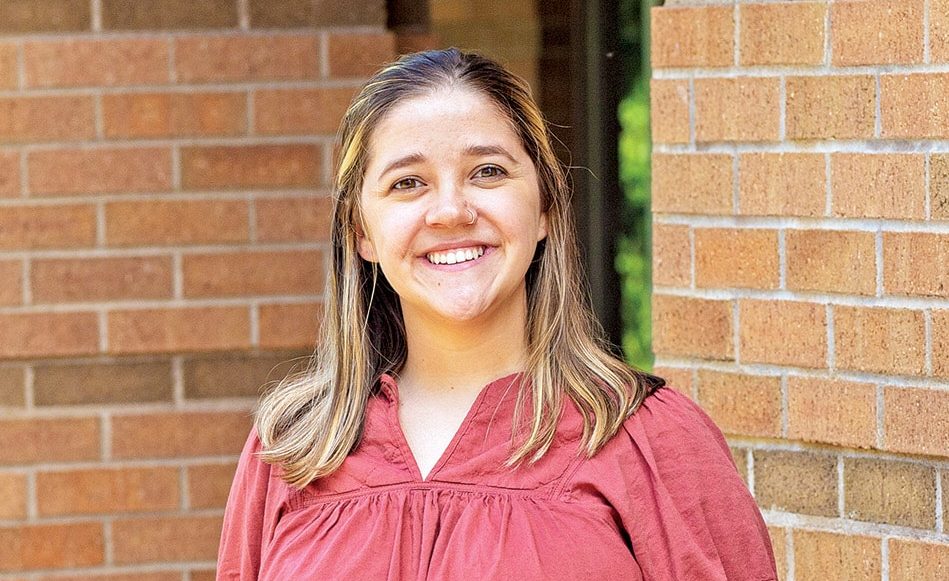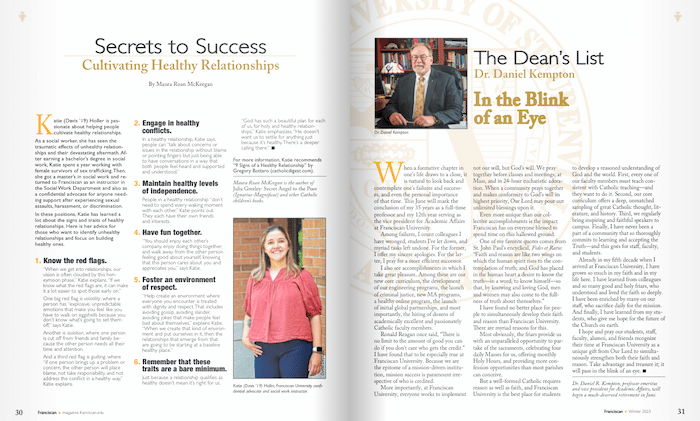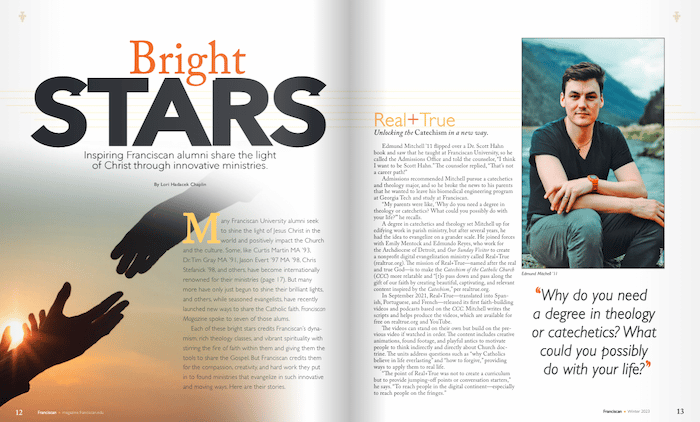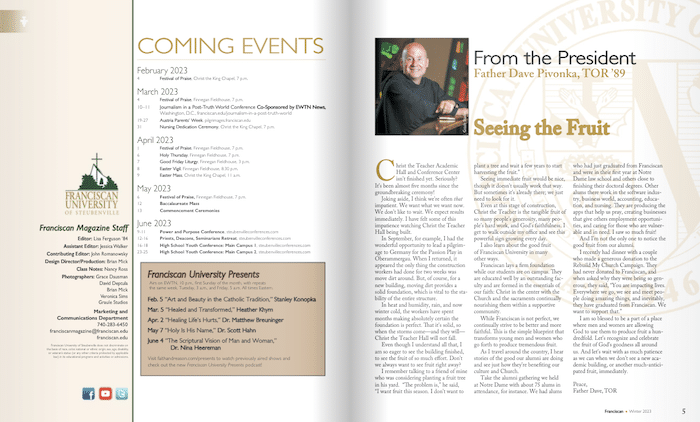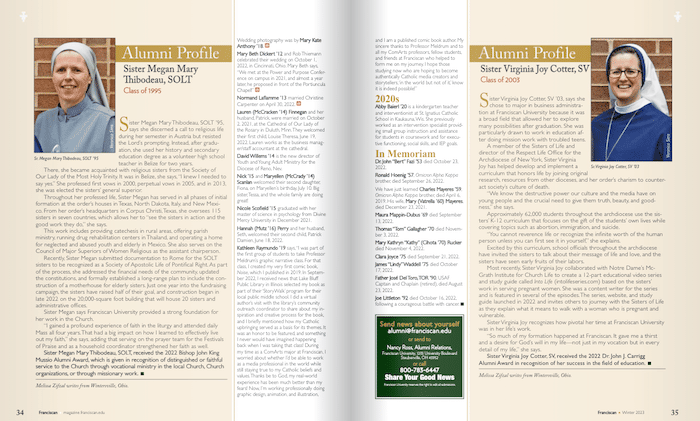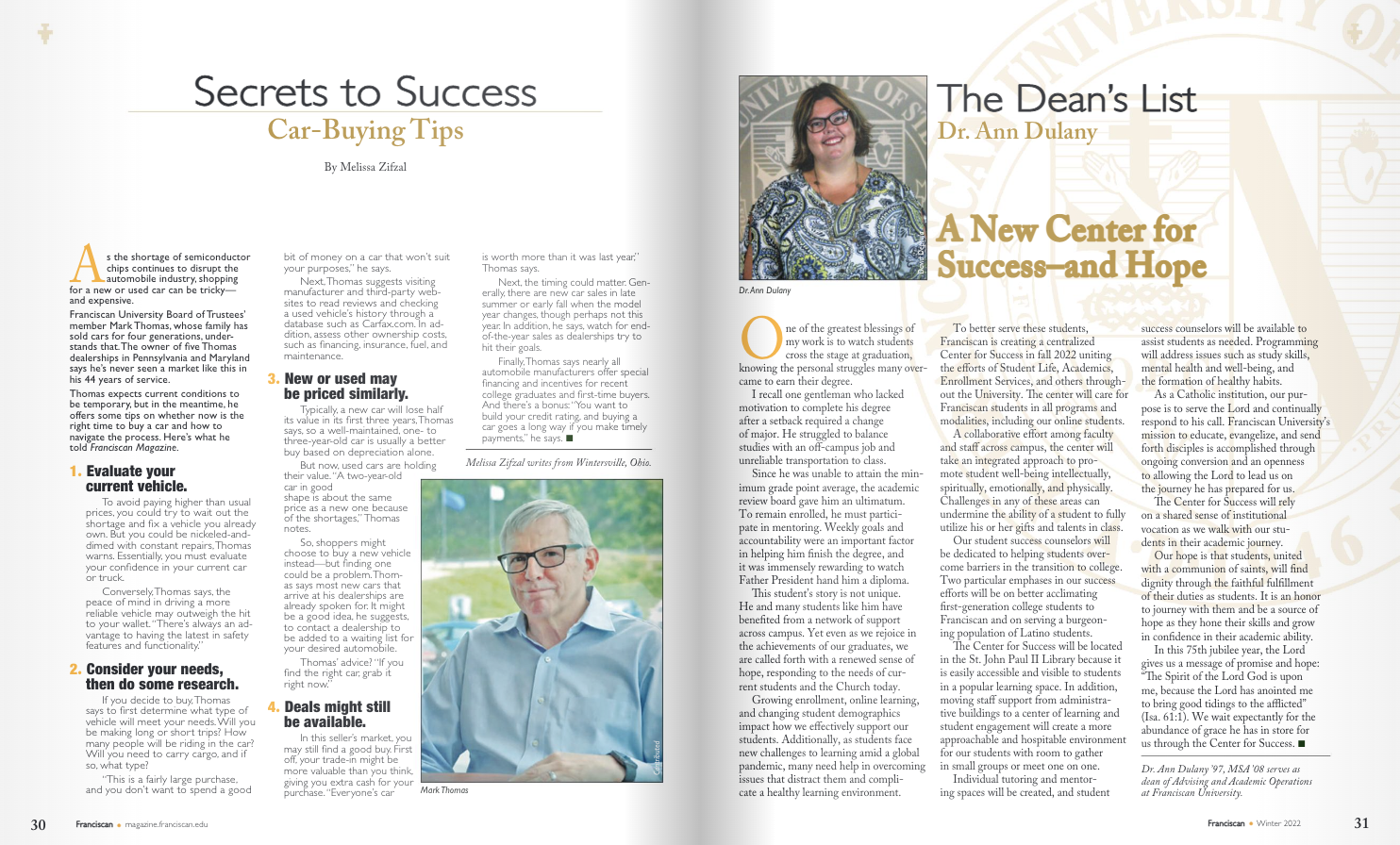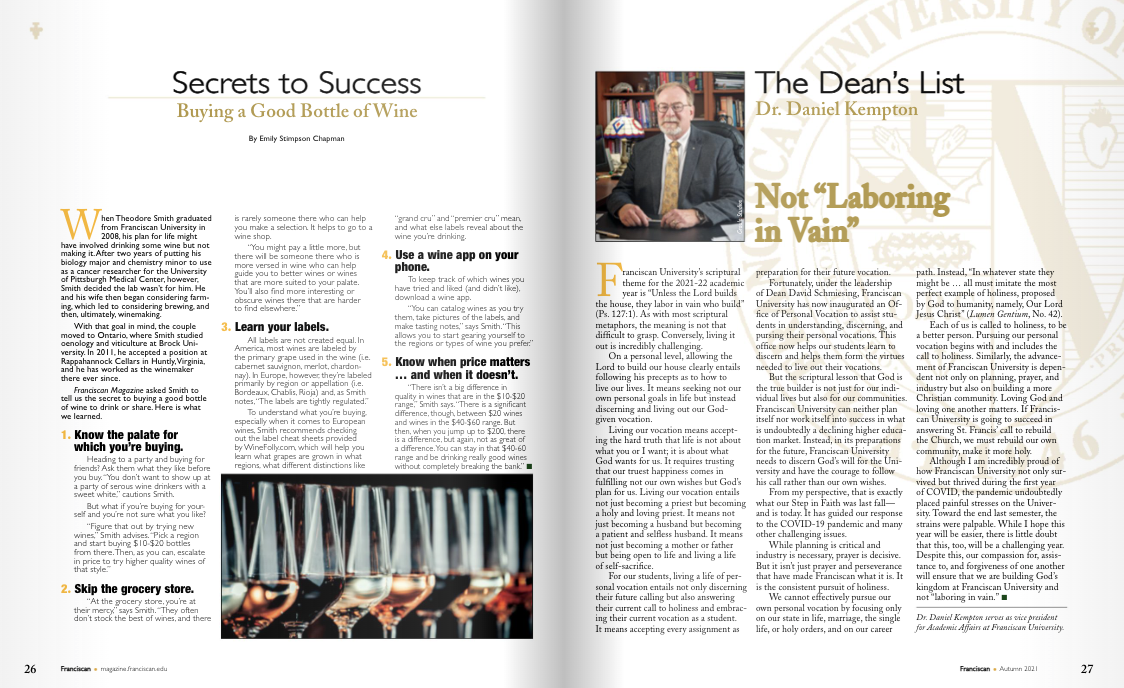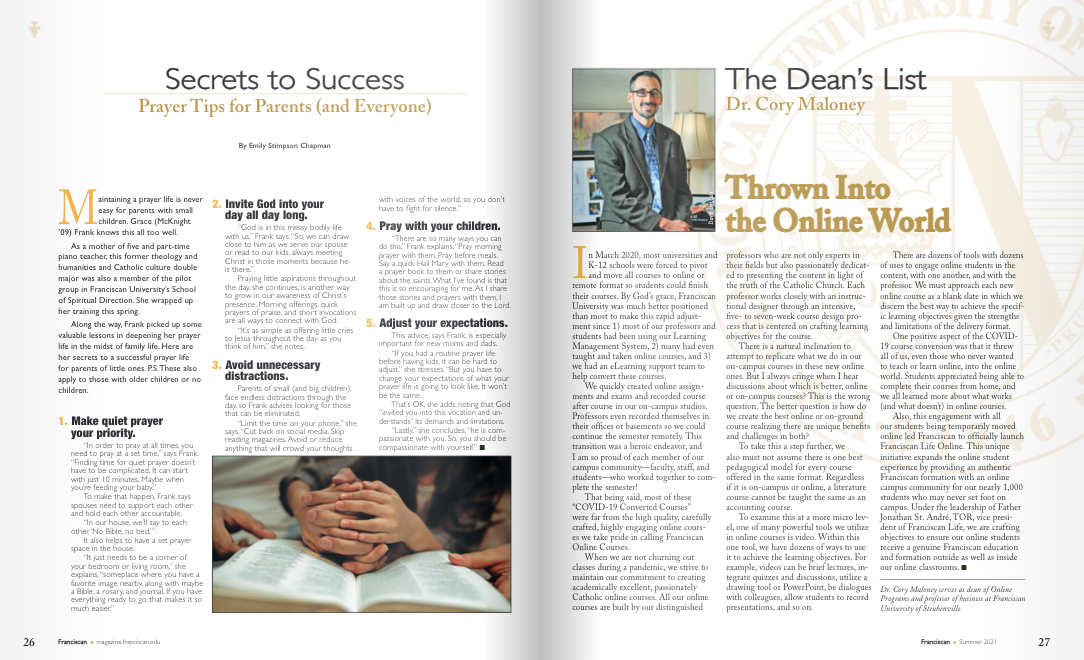Katie (Davis ’19) Holler is passionate about helping people cultivate healthy relationships.
As a social worker, she has seen the traumatic effects of unhealthy relationships and their devastating aftermath. After earning a bachelor’s degree in social work, Katie spent a year working with female survivors of sex trafficking. Then, she got a master’s in social work and returned to Franciscan as an instructor in the Social Work Department and also as a confidential advocate for anyone needing support after experiencing sexual assaults, harassment, or discrimination.
In these positions, Katie has learned a lot about the signs and traits of healthy relationships. Here is her advice for those who want to identify unhealthy relationships and focus on building healthy ones.
1. Know the red flags.
“When we get into relationships, our vision is often clouded by this honeymoon phase,” Katie explains. “If we know what the red flags are, it can make it a lot easier to spot those early on.”
One big red flag is volatility, where a person has “explosive, unpredictable emotions that make you feel like you have to walk on eggshells because you don’t know what’s going to set them off,” says Katie.
Another is isolation, where one person is cut off from friends and family because the other person needs all their time and attention.
And a third red flag is guilting, where “if one person brings up a problem or concern, the other person will place blame, not take responsibility, and not address the conflict in a healthy way,” Katie explains.
2. Engage in healthy conflicts.
In a healthy relationship, Katie says, people can “talk about concerns or issues in the relationship without blame or pointing fingers but just being able to have conversations in a way that both people feel heard and supported and understood.”
3. Maintain healthy levels of independence.
People in a healthy relationship “don’t need to spend every waking moment with each other,” Katie points out. They each have their own friends and interests.
4. Have fun together.
“You should enjoy each other’s company, enjoy doing things together, and walk away from the other person feeling good about yourself, knowing that this person cares about you and appreciates you,” says Katie.
5. Foster an environment of respect.
“Help create an environment where everyone you encounter is treated with dignity and respect. That includes avoiding gossip, avoiding slander, avoiding jokes that make people feel bad about themselves,” explains Katie. “When we create that kind of environment and put ourselves in it, then the relationships that emerge from that are going to be starting at a baseline healthy place.”
6. Remember that these traits are a bare minimum.
Just because a relationship qualifies as healthy doesn’t mean it’s right for us.
“God has such a beautiful plan for each of us, for holy and healthy relationships,” Katie emphasizes. “He doesn’t want us to settle for anything just because it’s healthy. There’s a deeper calling there.”
For more information, Katie recommends “9 Signs of a Healthy Relationship” by Gregory Bottaro.
Maura Roan McKeegan is the author of “Julia Greeley: Secret Angel to the Poor” (Ignatius-Magnificat) and other Catholic children’s books.



